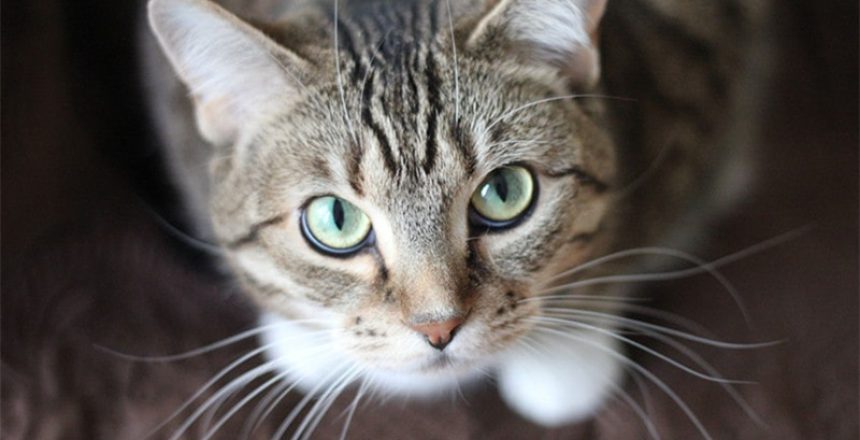French fries are among the most popular fast foods in the world today, mainly due to their salty, crunchy, and delicious taste. However, they’re currently the main subject of discourse in the world of pets, with some people expressing their concerns over the safety of feeding cats with French fries. So, can cats eat French fries? Read on to find out.
Interesting Facts about French Fries
Despite the ongoing campaigns against fried fast foods, French fries seem to be growing in popularity around the world, with many popular fast food restaurants offering them as their main dish. But what exactly do you know about French Fries? Here are some interesting facts about this type of fries.
-
Different Names
The name French fries is commonly used in America to refer to the deep-fried batons of potatoes. These fries are also referred to as French-fried potatoes, chips, fries, etc.
In the United States, any type of elongated pieces of fried potatoes is referred to as fries, while in Australia, New Zealand, Ireland, and the United Kingdom, they are referred to as fries to differentiate them from densely cut strips of fried potatoes known as chips.
In France, fries are referred to as patates frites, pommed frites, or frites. These terms are also common in several other non-French-speaking regions. Some people refer to French fries as French potatoes or fried potatoes.
-
Origin of the Name French Fries
French fries were devised in the mid-1800s in the United States. However, at this time, they were commonly referred to as French fried potatoes. But the term “potatoes” was dropped around 1930 to create the name French fries. Please note that French fries aren’t French, as their name suggests.
They originated in Belgium in the late-1600s where poor villagers, particularly in Meuse Valley, often relied on root plants like potatoes and small fish from the river to survive. They usually sliced and fried the potatoes. This trend was later adopted by the American soldiers stationed in Belgium during the first World War.
-
Potato Skin
Unlike other types of fried potatoes, French fries have their skin intact, which is believed to contain some essential nutrients that usually get lost when you peel away the potato skin.
These fries supply your body with important nutrients like vitamin C, which is necessary for boosting your immunity and building strong connective tissue. This vitamin also helps to repair wounds.
-
Popularity
In America alone, more than two million tons of French fries are consumed annually. Furthermore, popular fast-food restaurants like McDonald’s use about 7 percent of the potatoes grown in America to cook French fries. This restaurant sells 1/3 of all French fries sold in eateries across the US every year.
Can Cats Eat French Fries?
Keeping a cat as a pet causes your body to release oxytocin, the “love hormone”, which is released in your body when you fall in love. But you can only enjoy these benefits if your cat is in good health and is happy.
This means that you have to ensure that whatever you feed your cat is safe for it and has all the necessary nutrients. So, before you throw those tasty French fries into your cat’s bowl, think twice.
Sometimes your cat will accidentally nibble at your French fries when you leave them on the table unattended, or you might think you’re treating your loyal kitty by sharing your French fries with it.
But is it okay to give your cat French fries? While it’s not dangerous to give your cat French fries, there are certain critical exceptions that you need to be informed about.
When taken in small quantities, cooked French fries won’t harm your cat, but they might cause gastrointestinal distress. However, uncooked French fries aren’t safe for your cat because they contain toxins that can cause serious health complications.
So, it’s important to ensure that your French fries are properly cooked before you eat them or give them to your cat.
Since French fries are made from Russet (white potatoes) which contain a toxic substance that can put the health of your cat at risk. This glycoalkaloid substance is known as solanine and it’s mainly concentrated in the green areas of the potato plant.
So, if you are preparing French fries at home, don’t leave the raw slices unattended because your cat might help itself to them and end up suffering serious toxicity.
It’s also dangerous for your cat to eat potato peels or the green leaves and stalk of the potato plant that you throw in the trash bin. This toxic substance is broken down and neutralized by heat when you cook the slices. Solanine starts to decompose in the potato at 340 degrees Fahrenheit.
So, your fries should be cooked thoroughly to make them safe for you and your cat.
Apart from suffering from toxicity, your cat will also face the risk of adding excess weight because French fries are rich in carbohydrates and fat. Since French fries are deep-fried, they contain large amounts of saturated fat that can easily cause obesity.
So, even if your cat loves cooked French fries, feed it in moderation to avoid weight-related issues.
What Happens If My Cat Ate French Fries?
If your cat eats uncooked slices of French fries, it’ll soon develop symptoms of toxicity, including vomiting, diarrhea, and stomach pain. It might also show signs of neurological side effects like lethargy, disorientation, and depression.
In most cases, a cat won’t eat a lot of raw French fries, so the toxicity is likely to be minor.
But at times it might overindulge, especially if they are mixed with other delicious ingredients like tuna or milk. Eating a lot of French fries can leave your cat very ill.
In that case, you need to seek medical treatment for your feline friend immediately. If the toxicity isn’t addressed soon enough, it might put your cat’s life in danger.
What Should You Do?
When your cat develops the above-mentioned symptoms of toxicity, you need to take it to the veterinarian immediately. The vet will perform a full physical exam and draw blood to run the necessary tests. The vet needs to be sure what your feline buddy is suffering from before they can start administering any treatment.
The most common treatment for this kind of toxicity consists of decontamination and IV fluids to keep the cat hydrated. The vet might also give your cat some medications to control the symptoms, including nausea. But the diagnosis is usually quick and simple. If your cat is very ill, it may require hospitalization.




